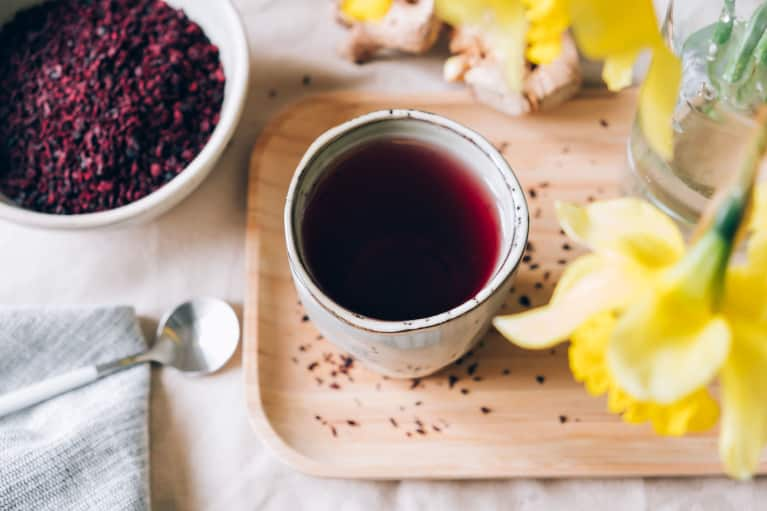What It's Actually Like To Intermittent Fast, According To 10 Real Women ( courtecy;- Liz Moody By Liz Moody Food Director )
What It's Actually Like To Intermittent Fast, According To 10 Real Women
June 18, 2018 — 9:05 AM
The popularity of intermittent fasting has soared over the past year, with doctors and laypeople alike lauding the diet’s ability to stabilize blood sugar, aid in weight loss, and more. But we were curious: What results did real people actually experience? And how did they feel on the diet? We asked real women across the country to share their experience doing various types of intermittent fasting. Here’s what they said:
1. My digestion has gotten a ton better.
I actually started intermittent fasting unintentionally, due to my crazy schedule as a trainer. I noticed that I really didn't feel well when I ate dinner on the later side, so I would aim to eat dinner around 6 p.m. I'm typically up at 5 a.m. for training clients and won't get home from my morning block until about 10 a.m., which is when I make breakfast—this ends up being exactly a 16-hour window. The biggest difference for me I've noticed is better digestion and blood sugar balance throughout the day with less overall fatigue and energy crashes in the afternoon, which also helps eliminate my caffeine and sugar cravings. I also sleep better because my digestion doesn't have to be working overtime, so my body can focus on all the other stuff my body needs during that recovery process.
—Minna, 27
2. My success with it really depends on my schedule at the time.
I've tried intermittent fasting nine times, and each time was different. I loved it at first and lost a ton of weight. Then the second time I tried it, it was so hard for me to skip breakfast. It really depends on my schedule and routine. For example, when I'm waking up earlier, it's very hard to maintain fasting until 1 or 2 in the afternoon. If I'm not waking up as early, it's more manageable. I think another factor is that I don't drink caffeine very often. I've done the Bulletproof thing, and that's helpful, but it brings on my anxiety, so I have to do decaf coffee with the MCT oil. If my schedule changed and I had to break my fast for a few days, it would throw me off, and I'd get off my routine. Or if a day was really hard, I'd give into breaking it. The rest of the time I eat a ton of soup, protein, and vegetables.
—Leah, 22
3. It's the best way to get rid of bloat.
For me, intermittent fasting is the best way to get rid of a bloated belly. I first tried it last year when I did my first 21-day cleanse (I did the Clean Program), and after I was done, it was one of the things I kept doing that actually made a difference. We don’t realize that our digestion works better if we actually let it work. It gets tricky on the weekend because you might eat later than usual, but maybe you have brunch instead of breakfast, and it works out. I am completely all for it. I did a 12- to 14-hour window, which isn’t too heavy because it includes sleeping hours. Other than that, I’d eat normally, which, for me, is three meals a day, usually no snacks (my digestion just works better that way). And also the fasting makes me eat dinner early, which helps with my gastritis/acid reflux.
—Roberta, 27
4. I want to keep it in my pocket as a weight loss tool.
I did it to prep for my wedding. I would try to eat between 1 and 8 or 9 p.m. I didn't really limit myself within that window, and if I had a late dinner, I didn't beat myself up about it but tried to follow as closely as I could. I think I also drank sometimes after 9 (it was summer!). I definitely lost weight, although I was also working out seven days a week. I felt great, though. Not bloated at all, which is rare for me since I live in a constant state of feeling puffy. I also didn't feel deprived. But once I started eating normally, I went back to my normal, which was fine. I love breakfast, and I want to keep it in my pocket as a weight loss tool when necessary!
—Carly, 30
5. I still fast, but I don't do it rigidly.
I've been doing 16-hour fasts on and off for over a year now. At first it was REALLY hard. I used to snack right up until bedtime and eat breakfast the second I woke up. But once I got used to it, I saw a ridiculous amount of benefits—I slept better since I wasn't digesting while trying to fall asleep, I had more energy throughout the day, and I stopped having blood sugar crashes. I'll admit that 16-hour fasts aren't possible every day, but that's OK. I try not to live my life too rigidly, fasting included.
—Diane, 57
6. It sapped my energy and made me SUPER moody.
I fasted from about 7 p.m. to 11 a.m. and allowed myself coffee in the a.m. My digestion was absolutely amazing, but I was so, so moody. Also, my energy was so low that I could hardly make it through my workouts. Eventually, I realized the reason I was regressing was because I had zero energy from starving myself two-thirds of the day. Now, I snack until about 9 p.m. and drink a protein shake around 7:30 a.m.—right after my workout—and I feel so much better.
—Ashlae, 30
7. It gave me acid reflux and messed with my hormones.
I have a love-hate relationship with intermittent fasting. I’ve usually done the 16:8 method or as close to it as I can manage with the 16 hours being between dinner one day and lunch the next, i.e., skipping breakfast. I’d have dinner at 8 p.m. and lunch the next day at noon. Whenever I start it, I feel great for the first few weeks—so much more alert, less brain fog, less hunger, and more satisfaction. After a while, I start to develop some sort of acidity, though, and if I continue to ignore my body signals and practice intermittent fasting strictly, it turns into acid reflux that then takes two to three weeks of eating every few hours to heal. Because of this, I’ve stopped practicing intermittent fasting strictly and simply eat intuitively now. I’ve also noticed that my period can be a bit out of whack when I'm intermittent fasting, and there are a lot of studies out there talking about how the effects of fasting are not documented for women (while the benefits for men are very clear). It works great for fueling workouts and feeling satisfied and full (without hunger pangs) throughout the day.
—Sai, 27
8. It's helped me lose 30 pounds.
I'm doing it as part of a keto diet. I fast for 15 hours (9 p.m. to noon). I've been sleeping better, my energy is steady throughout the day, and I feel fuller longer. I've been doing it for a little over two months and lost 30 pounds, but most importantly I feel great! I do coffee with MCT oil powder to get through till noon.
—Phoebe, 26
9. It wasn't psychologically healthy.
I did it about two years ago. I fasted for two 36-hour periods every week. During the fast, I ate a max of 200 calories. I felt fine really—it helped to do it during work so I was busy and distracted. I wasn't measuring my weight or anything. I was doing it more for my metabolism and to hopefully stave off diabetes. Overall, I think I did it for two months before giving it up. It was easy to do, physically. But I eventually stopped because it was affecting my social life too much, and I felt it wasn't psychologically healthy to be constantly thinking about and planning my food fasts.
—Renee, 31
10. It helped me beat my weight-loss plateau.
I’ve never eaten early, so when I decided to start skipping lunch, it was no big deal. I fast from 9 p.m. (I eat almonds before bed) until 2 or 3 p.m., when I eat more nuts to hold me over until dinner. I have eaten a keto diet for a few months and lost 15 pounds until I plateaued a couple of months ago. That's when I stretched my fasting a few more hours. I read keto/IF together works best with people "of a certain age" (me). The fasting knocked me out of my plateau, and I’m down an additional 5 pounds. I do drink coffee with a splash of cream, so there are a few calories in there, but not many.
—Sherry, 55
There are a number of different types of intermittent fasting. Which is right for you?


মন্তব্যসমূহ
একটি মন্তব্য পোস্ট করুন